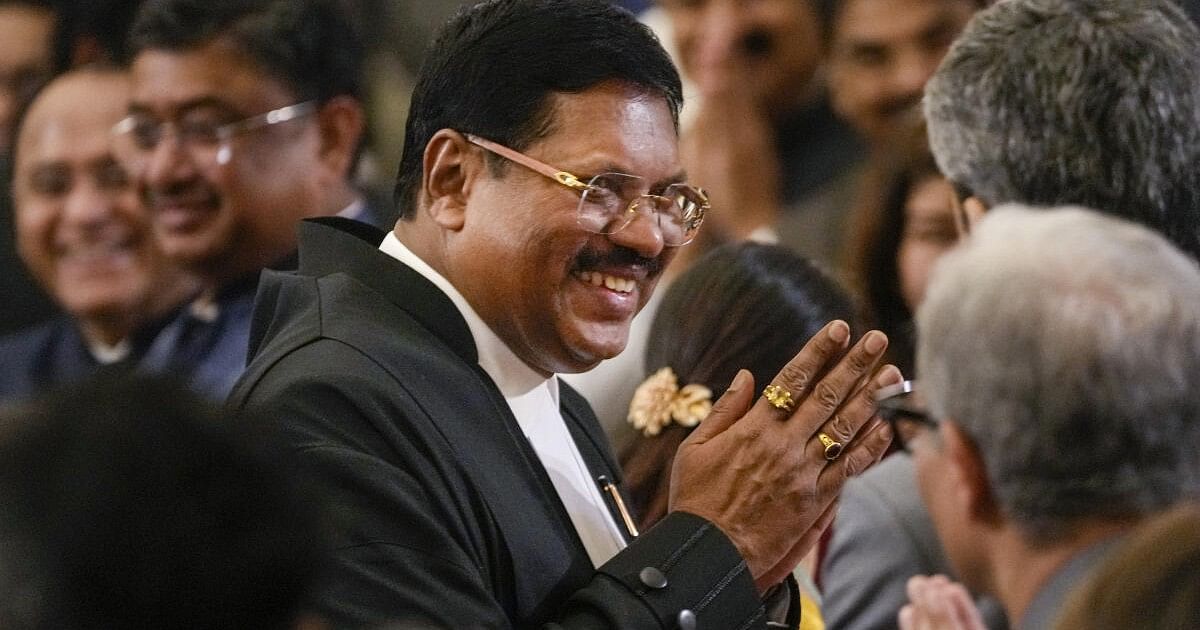 |
|
Justice Gavai's ascent to the position of Chief Justice of India marks a significant moment in the nation's judicial history. As the second Dalit, after K G Balakrishnan, to hold this esteemed office, his tenure, though brief at six months, carries immense weight and significance. The swearing-in ceremony, presided over by President Droupadi Murmu, symbolizes the highest echelons of Indian democracy entrusting Justice Gavai with the crucial responsibility of upholding the rule of law and ensuring justice for all citizens. The article's mention of landmark verdicts on contentious issues like Article 370 and 'bulldozer justice' immediately highlights the high-stakes environment in which Justice Gavai assumes his duties. These issues are not merely legal matters; they are deeply intertwined with socio-political narratives, public sentiment, and the very fabric of India's constitutional democracy. The relatively short duration of his tenure, ending November 23, 2025, amplifies the pressure on Justice Gavai to make meaningful contributions and leave an indelible mark on the Indian legal landscape. This necessitates a focused and decisive approach to address the pressing legal challenges confronting the nation.
The reference to Article 370 immediately conjures the complex and highly debated decision concerning the revocation of the special status of Jammu and Kashmir. This verdict, delivered during Justice Gavai's time on the bench, carries profound implications for the region's political landscape, its integration with the rest of India, and the fundamental rights of its citizens. The mention of 'bulldozer justice' alludes to the controversial practice of demolishing properties allegedly belonging to individuals accused of crimes, often without due process or legal recourse. This practice has sparked widespread criticism from human rights organizations and legal experts, who argue that it violates fundamental principles of natural justice and the right to fair hearing. Justice Gavai's pronouncements and judicial stance on these critical issues will be closely scrutinized by legal scholars, political analysts, and the general public alike. The way he navigates these contentious matters will not only shape the legal outcomes of these specific cases but will also set precedents for future legal interpretations and judicial responses to similar challenges.
Beyond the specific cases mentioned, Justice Gavai's appointment as CJI holds symbolic importance for the representation of marginalized communities in the higher judiciary. His background as a Dalit underscores the importance of diversity and inclusion in institutions that are entrusted with upholding justice and equality. His presence at the helm of the judiciary sends a powerful message about the progress India has made in addressing historical inequalities and promoting social justice. However, it also highlights the ongoing need for greater representation of marginalized groups at all levels of the legal system. Justice Gavai's tenure presents an opportunity to address systemic biases and promote a more inclusive and equitable legal framework. This could involve initiatives to encourage greater participation of individuals from disadvantaged backgrounds in legal education and the judiciary, as well as reforms to ensure that the legal system is more responsive to the needs and concerns of marginalized communities.
The Indian judiciary plays a crucial role in safeguarding the Constitution, protecting fundamental rights, and resolving disputes between citizens, the government, and other entities. The Chief Justice of India, as the head of the judiciary, holds immense power and influence in shaping the direction of the legal system. The CJI not only presides over important cases but also plays a key role in the appointment of judges to the Supreme Court and High Courts. The CJI's leadership is essential for maintaining the independence of the judiciary and ensuring that it remains free from political interference. Justice Gavai's appointment comes at a time when the Indian judiciary is facing numerous challenges, including a backlog of cases, concerns about judicial accountability, and criticisms of its handling of sensitive political matters. His ability to address these challenges and uphold the integrity of the judiciary will be crucial for maintaining public trust in the legal system.
In conclusion, Justice Gavai's appointment as Chief Justice of India is a significant event with far-reaching implications. His tenure, though short, presents an opportunity to address critical legal issues, promote social justice, and strengthen the independence of the judiciary. His pronouncements on Article 370 and 'bulldozer justice' will be closely watched, and his leadership will be crucial for navigating the challenges facing the Indian legal system. The nation anticipates his contributions with hope and expectation, knowing that his decisions will shape the legal landscape for years to come. The weight of this responsibility rests heavily on his shoulders, and the coming months will be a testament to his commitment to justice, equality, and the rule of law. As the second Dalit to hold this position, his journey is not just a personal achievement but a symbol of hope and progress for marginalized communities across the nation. The judiciary, under his leadership, must strive to be a beacon of fairness, impartiality, and unwavering dedication to the principles enshrined in the Constitution.
Source: Judiciary Milestones: CJI Gavai's Landmark Verdicts on Article 370, Bulldozer Justice
